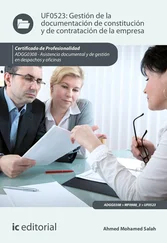“Let me welcome you to South Atlantic House of Refuge Number 49, or Sweet Surcease, as we call her.” Mounted on the wall behind them there was an ancient piece of driftwood with that name burned into it, the work of the station’s first keeper more than twenty years ago. “My name is Justin Agnarsson. No need to stand on formality, just call me Justin if you like.”
“Thank you, sir. We are very grateful.” The man extended a calloused hand across the table. Agnarsson noticed that it trembled. “My name is Horacio Vietes. This is my daughter, Sandra.”
The dark-haired young woman stared unblinkingly at the floor and pulled tight the blanket wrapped around her, but said nothing.
* * *
“You wanted to speak with me before I made my report.”
Horacio Vietes hesitated, folding his hands and pressing them to his lips. At length, he replied with a question. “Is there any way you can see not to report this?”
The stationkeeper arched his brow as if in surprise, though he expected the request. “That would be highly irregular. I’m required to report all arrivals and all disasters at sea. Surely there are people who want to know that you and your daughter are alive?”
“That, sir, is the problem,” said Horacio. “I will be forthright, and leave the decision to your judgment. We were attacked by an Argentine warship. They boarded us without warning, and when I challenged them, they shot at us. My wife—” His voice grew strained again, and began to crack.
Agnarsson winced. There was no doubt what the man was about to say.
“My wife, and my little boy, were gunned down,” he ground out.
“On what cause were you boarded?”
“You will have to ask them,” he snapped, and his red eyes darted angrily. “I left Argentina fifteen years ago. We are not citizens, our home was not under its flag.”
“You moored in territorial waters?” Agnarsson asked.
“No. In the Raft, just as we are now.”
Agnarsson knew that both sides had made threats of interdicting vessels and seasteads in international waters, but this was the first he’d heard of any such action. If true, it was a dramatic escalation of the war. The Plata Raft, like all other high seas traffic, was guaranteed freedom from interference, and there were a lot of other flags flying on those vessels, flags of clades and states alike that would not quietly accept such aggression. It would risk the entry of other parties into the war, a war that was already going against the Argentines. There was only one reason that Agnarsson could think of for them to risk it.
“Mr. Vietes, I have to ask you something in my official capacity as an officer of Atlantic Littoral, and I expect an honest reply. But first, let me assure you that, no matter how you answer, you and your daughter are in no danger of being turned over to the Argentine navy. Houses of refuge are inviolable under the terms of the Treaty of Tokyo, as well as the Common Accords on Mediation, Extradition, Restitution, and Arbitration. As a matter of policy, Atlantic Littoral does not turn over the custody refugees or survivors at sea to hostile parties. Do you understand?”
“I understand.”
“Were you knowingly involved in piracy or privateering against Argentina, or smuggling of contraband?”
“Sir, you speak of treaties and the CAMERA accords, but they are just pieces of paper. What word do you give me man to man?”
Agnarsson straightened in his chair. “On my honor, I swear that I will live up to those terms, or else die failing to live up to them.”
Horacio gave a slow nod. “Yes. I helped deliver weapons and fuel to the Coloradan rebels. But my family had no part in it.”
“Your family had every part of it,” Sandra snarled. Her father shot her a sharp glance, but she didn’t heed it.
“I am proud to have aided the Colorados . We have nothing to feel guilty for. The Reconstructos weren’t satisfied just to murder grandfather and your brothers on land, they had to butcher Mama and Pedro, too. They are the guilty ones!”
“Be silent right now!”
“No!” She turned her fierce gaze on Agnarsson and spoke bitterly. “I don’t care if you call us pirates or smugglers. Unless they kill me first, I will do it all over again. And again, and again, until all the Reconstructo filth is washed from the earth! I will fight them with my last breath, and then may I die with my hands around their throats!”
Agnarsson would have been dismayed to hear those words from a grown man, much less an innocent in the early bloom of womanhood. He pitied her transformation almost as much as he pitied the loss of her family. Here was one of the tragedies of war that too often went unremarked, the outrages that transform the innocent into monsters and poison whole generations with hate.
“I am sorry for my daughter’s outburst. I implore you to forget her words.”
“I will not forget them,” said Sandra.
“I am sorry for all that happened to you. Regardless of anything else, firing on a woman and a child in their home is unconscionable,” Agnarsson said. “I must make my report, but I won’t mention anything you just told me. Not yet, anyway. For now I’ll report you as war refugees. That way you’ll have some help finding a place to live. Until then, you’ll be safe here.”
“Please! If you do, they will know where we are. They will come for us!”
“I doubt it. The whole world would come down on them.” The AutoChef buzzed, and Agnarsson stood up. “Try to eat something if you can, and then rest. You’ll be safe here.”
* * *
Agnarsson stood alone on the uppermost deck of the observation tower, scanning the frothy green surface of the Argentine Sea through binoculars. Having emptied its burden on the ocean, the wall of east-moving clouds had desaturated to a light, vaporous gray and begun to break up, allowing the passage of the first direct rays of morning. To the west, the flood lamps on the shadowy bulks of scattered seasteads began to wink out and the masts of more distant vessels became visible for the first time without aid of their navigational lights.
He had dispatched his morning report about twenty five minutes ago, received the reply and standby instruction twenty two minutes ago, and received an electronic query from the Argentine warship Furibundo fifteen minutes ago. The message informed him of “coastal security” operations conducted the previous night, and the pursuit of two known illicit weapon traffickers and unlawful combatants, listing Horacio and Sandra Vietes by name, and might these not be the same alleged refugees? Agnarsson dutifully left it unanswered. But now he was being hailed on the ship-to-ship radio. The stationkeeper considered leaving the hail unanswered as well, but he wasn’t going to allow them any excuse to “render assistance.”
“Atlantic Littoral Refuge 49, go ahead Furibundo ,” he replied in English, hoping that would lend some difficulty to the affair. There was a delay, but he eventually received a reply in the most obsequious English.
“Refuge 49, have sent you electronic bulletin warning of known, dangerous war criminals. Can you please offer confirmation? We are prepared to render assistance, over.”
Agnarsson’s smile was tight and rueful. “Received bulletin. No assistance necessary. My compliments to your captain and the Argentine Navy for its responsible stewardship of the seas. Refuge 49, out.”
Agnarsson wasn’t worried. He expected the Argentines to inquire; in fact, he expected them to pester him for much of the day. This was his first assignment as a Stationkeeper, but he had seen similar scenarios play out when he was an ALERT man, and he had been told what to expect by veteran stationkeepers who had gone through the same rigmarole a dozen times in their lives. What he didn’t expect, what was nearly unthinkable, was that the Argentines might try to force the issue. To violate a house of refuge was a grave crime under both treaties and customary law. It was an act of piracy, rendering one a hostis humani generis —an an enemy of humanity—and inviting the most severe retribution that no flag or writ would shield one from. In the 29 years Agnarsson had lived, no life saving ship or station had been attacked by any state or Clade anywhere on earth.
Читать дальше












